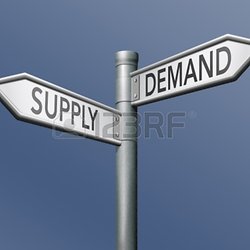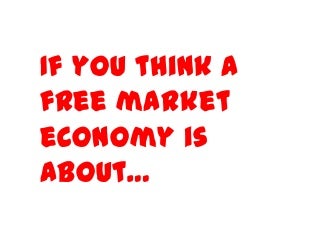 In my previous hub , I have reviewed some frequent optimistic and unfavorable characteristics of the transitioning process in international locations transferring from a central planned economic system to a market-primarily based economic system. Before substantiating my thesis by contrasting the essential characteristics of Austrian thought with those of the classical and the Lausanne college, I have to meet two obvious objections. The quantities and prices of goods offered available in the market rely upon these individual needs and talents. My next activity is to differentiate the particular characteristics of the Viennese college from those of the Lausanne college. So the differences existed, and so they still do. It is for us to determine those characteristics of the Austrian fashion of thought to which formalistic analysis can not do justice. Now, there may be actually a basic nexus of all market phenomena, and the Austrians certainly not denied this truth.
In my previous hub , I have reviewed some frequent optimistic and unfavorable characteristics of the transitioning process in international locations transferring from a central planned economic system to a market-primarily based economic system. Before substantiating my thesis by contrasting the essential characteristics of Austrian thought with those of the classical and the Lausanne college, I have to meet two obvious objections. The quantities and prices of goods offered available in the market rely upon these individual needs and talents. My next activity is to differentiate the particular characteristics of the Viennese college from those of the Lausanne college. So the differences existed, and so they still do. It is for us to determine those characteristics of the Austrian fashion of thought to which formalistic analysis can not do justice. Now, there may be actually a basic nexus of all market phenomena, and the Austrians certainly not denied this truth.
We thus see why economic plans occupy a central place in Austrian principle, while the final nexus of market phenomena is neglected. This is the truemeaning of the famous sentence: L’individu peut disparaitre, pourvu qu’ilnous laisse cette photographie de ses goῦts.” 21 Here plainly man as economic agent does not stand at the heart of economic life. It must be admitted that hitherto the scope of economic principle has been unduly restricted to the formal characteristics of the economic downside and its implications. A market will exhibit inelastic expectations only if it believes that value is in the end governed by long-run forces, and if it has a fairly definite conception of what these forces are.
A capital market with inelastic interest-expectations is then a market which refuses to be impressed by present-day demand for securities which it believes to be quick-lived. For the same purpose, in such a case, as Mr. Harrod predicted, an try to put the bond market underneath stress by the use of open-market operations is prone to prove a failure.
Until an economic crisis occurs, it is attainable to take the position that the benefits of a market economic system outweigh its disadvantages, or the alternative position, and to develop a political strategy that accords with one’s view, whatever it is. But if a crisis does away with many of the necessary advantages associated with the market, this is now not attainable.
The answer is that they are continually changing, and if adjustments generally favor the advantages (not by making the disadvantages disappear, which is unimaginable, but by making them appear smaller), the movement toward economic crisis that is going down in all market economies at present makes it clear that it is the disadvantages associated with the market which might be changing into its most distinguished features.
